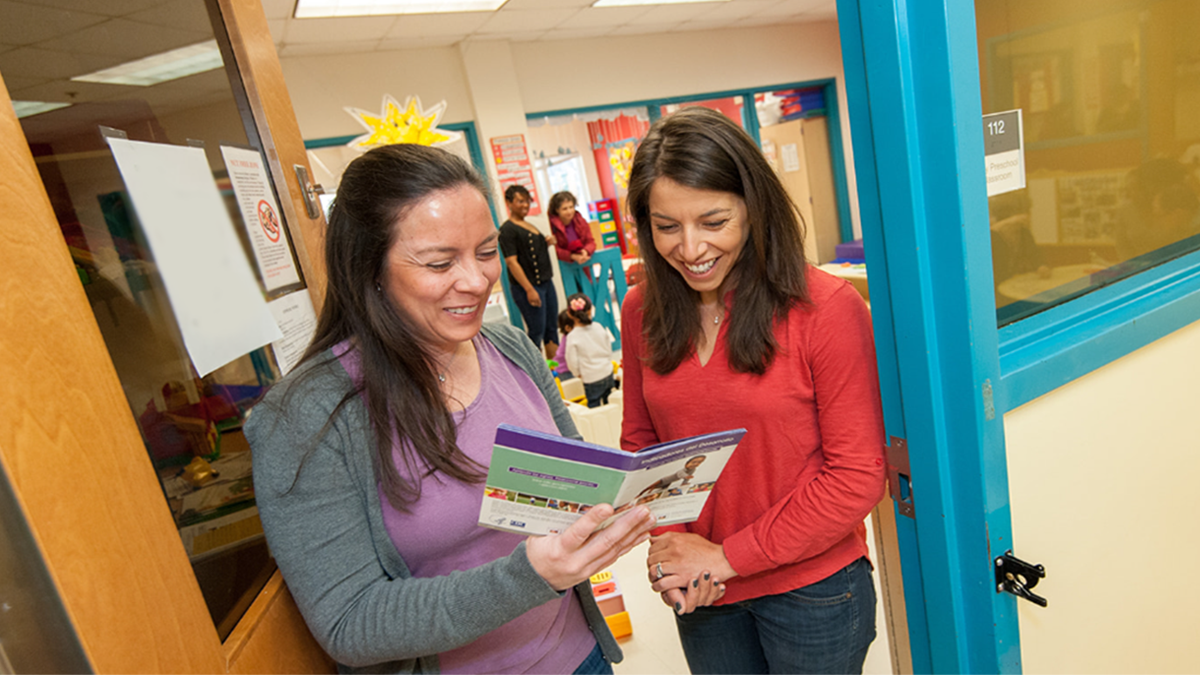What to know
- Learn the Signs. Act Early. (LTSAE) aims to partner with professionals, programs, and systems across disciplines to better support young children and families, celebrate milestones, and act early on developmental concerns.
- Quick Guides inform professionals across disciplines on how to use LTSAE resources to help meet their programmatic goals.
- Act Early Ambassadors develop partnerships nationwide that integrate family-engaged developmental monitoring and improve early identification of developmental disabilities.

Health and Early Childhood Programs and Systems
Learn the Signs. Act Early. resources support providers across disciplines and programs that regularly serve young children and their families.
Visit these pages to learn how developmental milestones can be integrated in each setting.
Quick Guides
Tailored to health and early childhood programs and systems, these Quick Guides help providers and staff at the national, state, territorial, tribal, and local levels:
- Understand why engaging families in developmental monitoring is important
- Learn how LTSAE's free developmental milestone resources can support their work
- Use simple strategies that have worked for others
- Raise awareness and build partnerships to support early childhood development across communities
Click to view and print the quick guides below:
Quick Guides are available in English and Spanish. Visit our resources page to view all.
Act Early Ambassadors
CDC's Act Early Ambassadors expand the reach of the Learn the Signs. Act Early. program and support their respective state's or territory's work toward improving early identification of developmental delays and disabilities. They partner and collaborate with organizations to integrate family-engaged developmental monitoring using Learn the Signs. Act Early. resources into local communities and statewide systems that serve families with young children. Learn more and find your local Act Early Ambassador.
Family-Engaged Developmental Monitoring
For some programs, partners, and early childhood systems efforts, it may be helpful to understand the role of developmental milestone checklists in family-engaged developmental monitoring (FEDM). FEDM is "an intentional partnership of families and providers working to highlight a child's developmental progress and identify opportunities for support and education for positive outcomes."[[1]] Visit the Help Me Grow National Center for a toolkit to help share the concept of FEDM and provide examples of application and practice.
- Passarelli, M., Howe, E., Walchenbach, S., & Therriault, C. (2023). A Roadmap for Advancing Family-Engaged Developmental Monitoring. Help Me Grow National Center & Association of University Centers on Disabilities.
